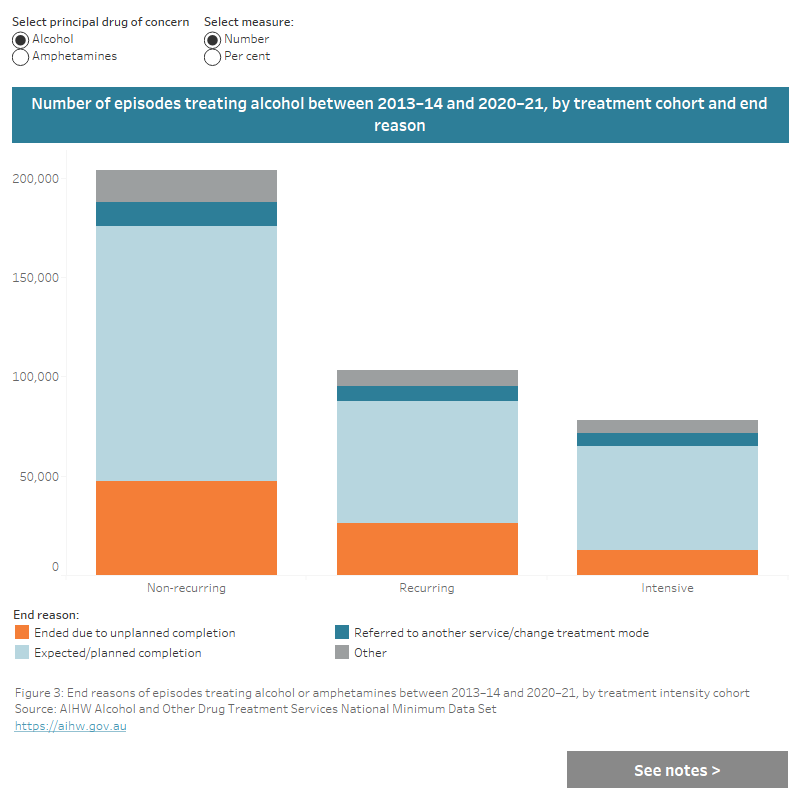Principal drug of concern
Across all treatment intensity cohorts, episodes treating amphetamines as a principal drug of concern were more likely to end with an unplanned completion than episodes treating alcohol (Figure 3).
Figure 3: End reasons of episodes treating alcohol or amphetamines between 2013–14 and 2020–21, by treatment intensity cohort
This interactive data visualisation shows the number and proportion of episodes provided to clients receiving intensive, recurring and non-recurring treatment for alcohol or amphetamines. Episodes are presented by reason for cessation.

The likelihood of unplanned completion was lower among treatment episodes provided to clients who received intensive treatment:
- around 2 in 10 episodes (16% for alcohol; 23% for amphetamines) provided to clients who received intensive treatment
- around 3 in 10 episodes (25% for alcohol, 32% for amphetamines) provided to clients who received recurring treatment
- around 2 in 10 episodes (23% for alcohol), and 3 in 10 episodes (31% for amphetamines) provided to clients who received non-recurring treatment.
For further details, refer to Supplementary tables BLTN.3 and BLTN.4.


